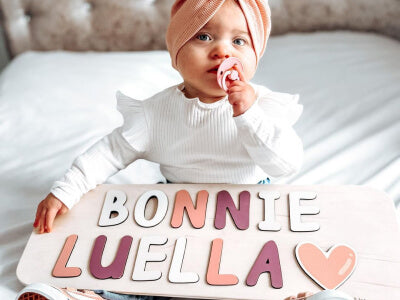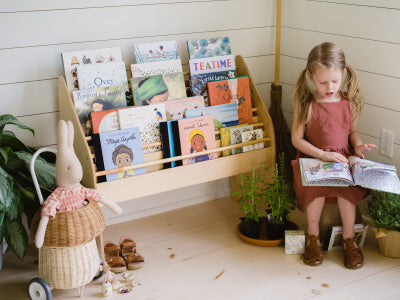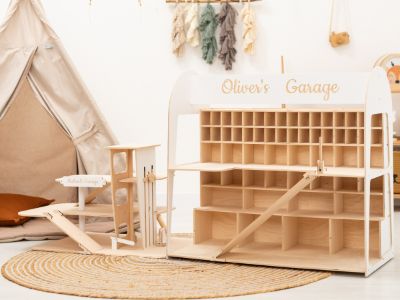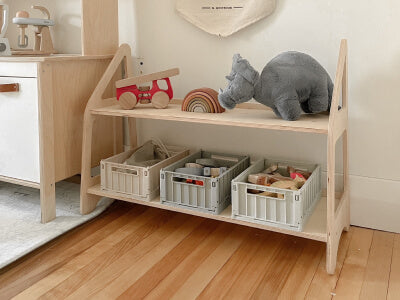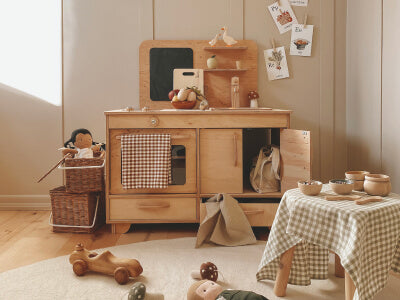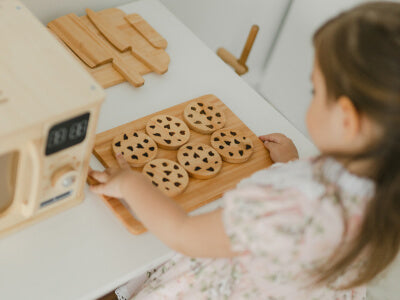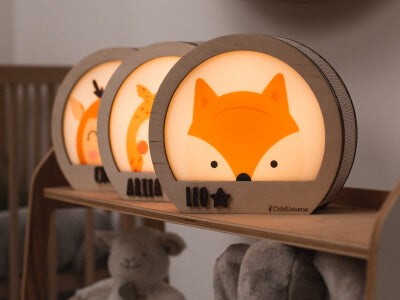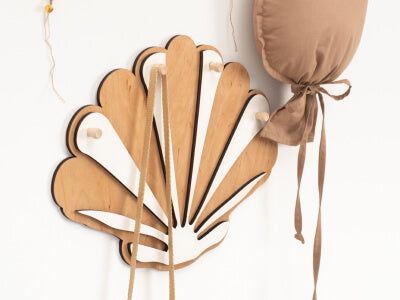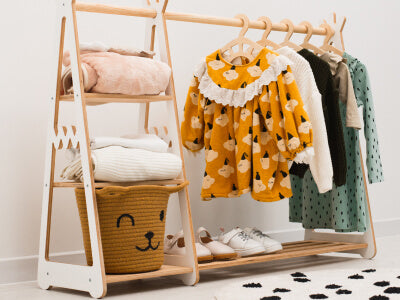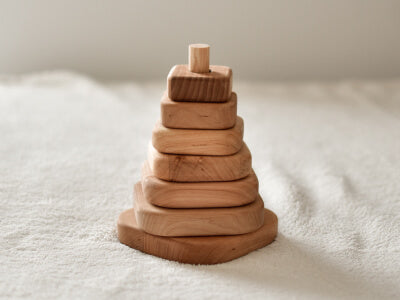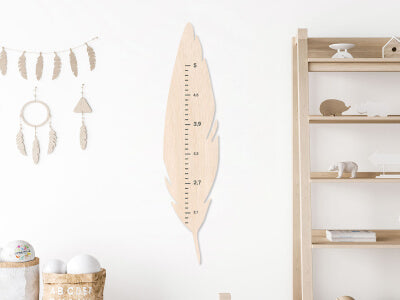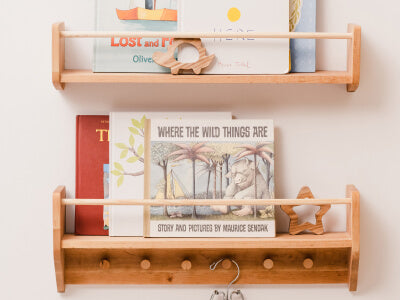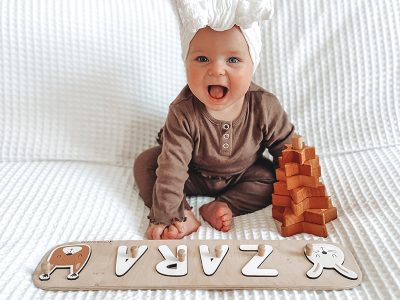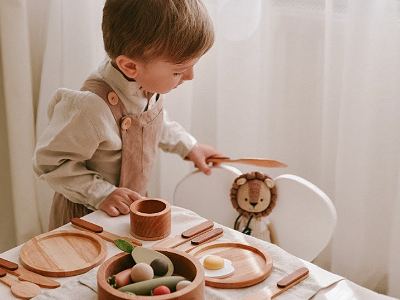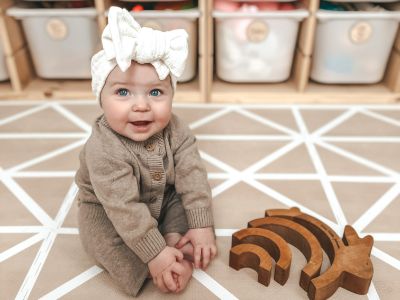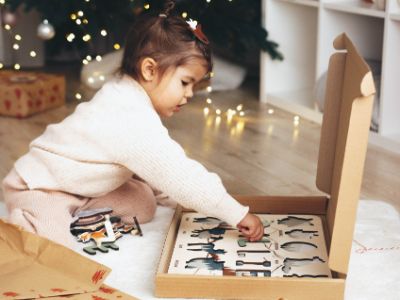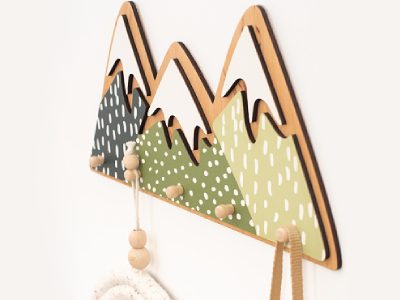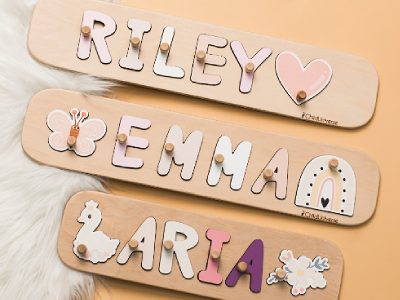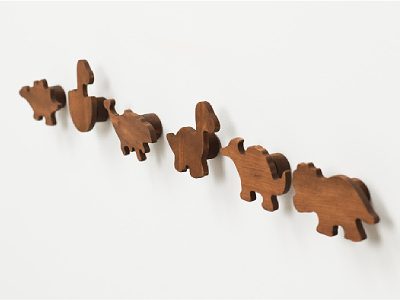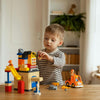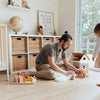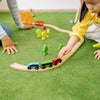Best Toys that Help with Cognitive Development
- • 6 min read
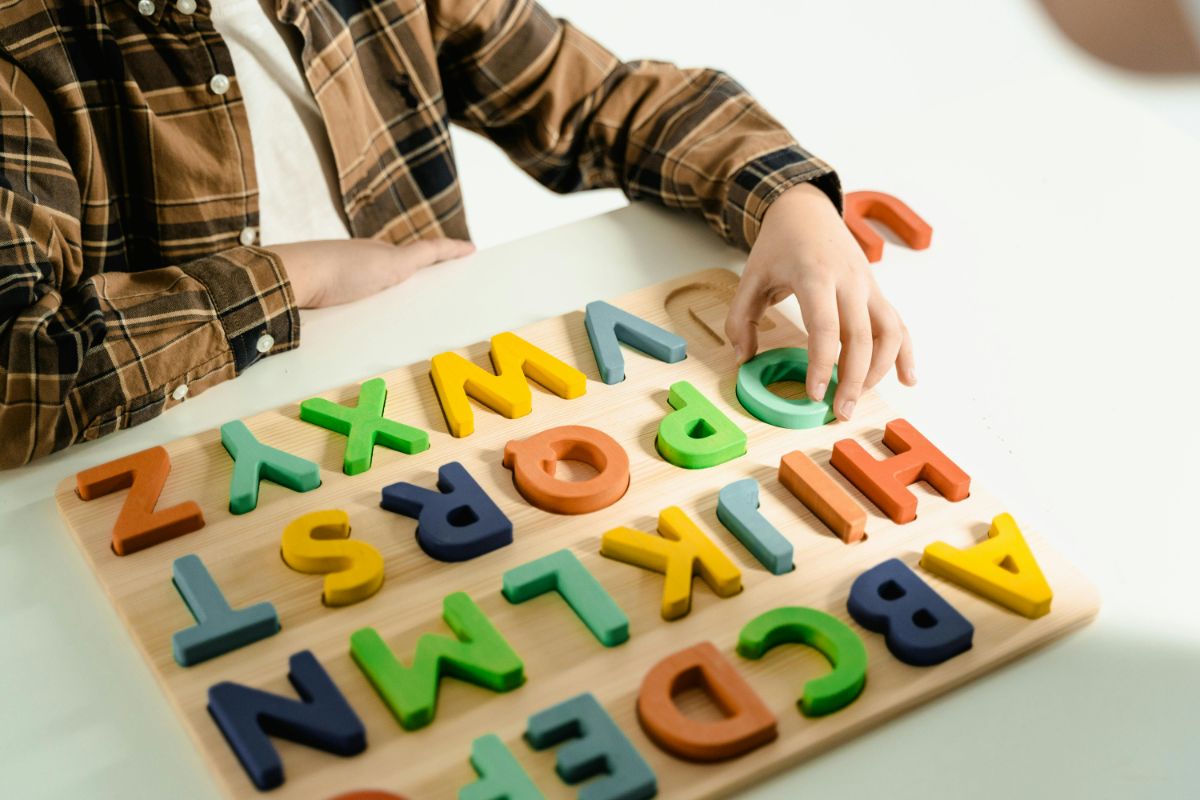
Photo by Mart Production from Pexels
- Cognitive Development Is…
- How and When They Play
- Puzzles
- Art Accessories
- Stuffed Animals and Baby Dolls
- Stacking Toys
- Kitchen Sets
- Interactive Books
- Musical Instruments
- Shape Sorters
- Tips to Pick Toys for Cognitive Development
Why are toys important? According to the “Traditional Toy and its Significance to a Child” research, “for a child a toy represents the world in a realistic or stylized way, the world which surrounds them, motivates their activity, living and acting.” Toys play a crucial part in stimulating the cognitive development of a kid, turning every other make-believe into an educational experience. At Child-Universe, we offer loads of playthings that encourage early cognitive development. This list includes items for newborns and fidgets that learn their first words. If you’re on the lookout for the best toys for cognitive development, we have alternatives that guarantee an enriching and fun routine.
Cognitive Development Is…
In general, the term refers to the ability of our brain to process, understand, and comprehend information about the world we live in. Kiddoes grow pretty fast and never stop learning. With every year come more complex ways to navigate the world. They mature and learn to make decisions, find the best solutions for the existing problems, learn critically, and get a better understanding of the non-material world. The process of cognitive development is non-stop and starts from the moment children come into this world with different personalities. The same process continues throughout the early years in the form of the most different experiences, like exploring their setting, toys, and communication with parents and other kids and adults.
How and When They Play
Why do kids play with toys? Based on the “Play: World of Children” research, “the impulse to play is innate, and its characteristics are fun, uncertainty, challenge, flexibility, and non-productivity.” When your bébé develops CD skills, play becomes more and more complex step by step:
- Around 4 months old, children start grasping and reaching for items;
- 6–7-month-olds can transfer those items between their hands;
- Around 9-month-olds can pick up age-appropriate toys;
- By age 2, they build towers, use crayons for scribbling, and play with a ball.
- By age 3, simple puzzles can be done.
Puzzles
Simple and time-tested puzzles do a fantastic job when it comes to cognitive abilities. Not only do they boost kid’s memory, but they also help them solve problems, improve visual perception, and explore geometric shapes and sizes. Considering the importance of toys in child development, puzzles come in loads of forms, from 2-piece simple ones for babies to complex jigsaws for toddlers. If you need to encourage persistence and patience in your pumpkin, puzzles will do the job and provide them with a strong sense of accomplishment and self-confidence.
Art Accessories
Humanity has not yet invented a better therapy, educational, and creative tool than art. Provide your tot with a set of markers, crayons, modeling clays, and paint to help them engage in a creative session that boosts their imagination and cultivates cognitive development. Not only will they hone essential hand-eye coordination skills, but they’ll also enhance motor skills while learning shapes, colors, and patterns that are the solid basis for healthy cognitive growth.
Stuffed Animals and Baby Dolls
The best toys for child development include classy stuffed toys and baby dolls that help little ones learn behaviors that are part of adulthood: feeding, hugging, putting someone to sleep, comforting, etc. The impact of toys on child development is obvious: it enables rug rats to imitate adults, learn what sequence is (“we need to undress the doll before she takes a shower”), and be more persistent in their actions (“the baby’s crying, what should we do to help him calm down?”).
Stacking Toys
In the Montessori Baby Toys category, we have a wide assortment of stacking toys for infants and toddlers. Stacking toys for early childhood development teach little sweethearts about balance, order, and size – the key cognitive concepts. When your baby is stacking rings, s/he gets better at hand-eye coordination and learns to solve the simplest problems. Plus, these items are helpful when it comes to sequencing and counting. They help a lot to cultivate early skills in math.
Kitchen Sets

Photo by Polesie Toys from Pexels
If you seek toys that help with cognitive development, pretend kitchens rock. They offer multiple options for the next generation to engage in math activities like counting plates, foods, meals, products, and utensils. The make-believe also involves measuring ingredients, distinguishing between cold and hot, mixing, pouring, stirring, etc. The pretend play usually includes following a sequence like washing dishes, serving food, and cleaning the table. Little chiefs choose to make a salad, French fries, or a couple of cocktails!
Interactive Books
This category is a range of early childhood development toys equipped with buttons, flaps, and pop-ups that engage loads of senses and keep players genuinely interested in this or that story. Interactive books are helpful when it comes to early language development and memory training. If you want your tot to ask questions, books are your best friends in encouraging your child to explore the world of prose.
Musical Instruments
How do toys help cognitive development and desire for beauty? With the help of musical instruments, of course! Items like tambourines, keyboards, and xylophones are great helpers along the way. When children play music, they learn to recognize rhythm and patterns and maintain focus and concentration. Besides, playing even the simplest instrument is about practice and self-discipline – valuable skills when adulthood kicks in.
Shape Sorters
No home arsenal is complete without these classy playthings that help little ones boost hand-eye coordination, learn different shapes, as well as hone problem-solving skills. As the tot learns to match shapes with the slots that correspond to them, they develop crucial fine motor skills and spatial awareness. What is more, parents asking themselves, “How do toys help child development?” should add shape sorters to their kiddo’s routine to introduce the basic concepts of geometry. Plus, it’s an easy way to encourage your copy to think critically about how different objects fit (or not) together.
Tips to Pick Toys for Cognitive Development

Photo by Cottonbro Studio from Pexels
When browsing tons of options available on the market, your mission is to make sure that playtime will be not only full of fun but safe and advantageous for cognitive growth.
- Select age-appropriate products. Different age categories require different types of stimulation, so pick toys that suit your baby’s developmental stage.
- Consider littlies’ interests. A toy that reflects a child’s passions – whether it’s stuffed cars, space, or dinos – will 100% naturally evoke their interests and bring out more cognitive benefits.
- Ensure materials are safe. Safety should be your priority when hunting for toys. Select products crafted from non-toxic and earth-friendly materials.
Why are educational toys important? The key is that they promote cognitive development and are precious helpers when it comes to kid’s growth, learning, and development. Luckily, today’s parents have access to myriads of toys and useful sources like our ChildUniverse Blog. Both are designed to ease the parenting journey and help munchkins go through all the stages of physical and health, intellectual, emotional and social development. From stacking toys and puzzles to musical instruments and role-play sets, these amusement accessories fuel up children’s minds and cultivate skills that they will benefit from until the end of their days.

